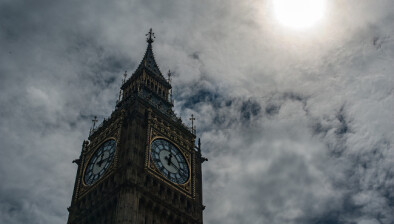NI Court of Appeal: Soldier fails in bid to avoid testifying at inquest by arguing it breaches self-incrimination protections

Northern Ireland’s Court of Appeal has rejected a challenge to the decision to refuse to set aside a subpoena ad testificandum issued by the High Court pursuant to section 67(1) of the Judicature (Northern Ireland) Act 1978, in the context of an ongoing coroner inquest.

About this case:
- Citation:[2022] NICA 6
- Judgment:
- Court:NI Court of Appeal
- Judge:Mrs Justice Keegan
The court found that the witness was safeguarded within the coronial process and the coroner could manage the inquest to ensure the privilege against self-incrimination was respected.
Background
Mr Mills died in 1972 as a result of gunshot wounds, in or around Finlay’s Factory where he worked as a watchman. The factory was in the Ballymurphy area, near Vere Foster School and Henry Taggart Memorial Hall which were both used as army bases at the time.
A Royal Military Police Report from 1972 appeared to name a particular soldier as being responsible for firing the shot that killed Mr Mills. A redacted and cyphered copy of this was made available to the coroner. That former soldier was known during the inquest as M4.
M4, through his lawyers, confirmed that his instructions were that he would not attend the inquest and that he wished to invoke his privilege against self-incrimination. The coroner then requested the High Court to issue the subpoena requiring attendance.
The coroner specifically stated that he respected the privilege against self-incrimination.
The core issue was whether the subpoena should have been set aside by the learned trial judge given M4’s stated intention to invoke his privilege against self-incrimination.
Consideration
Under the Coroners Rules, evidence at an inquest should ascertain who the deceased was; how, when and where they died; and the particulars required to register the death. In addition, an inquest which involves alleged State involvement must also comply with the investigative obligation found in in Article 2 of the European Convention on Human Rights (ECHR) for the inquest to be effective.
The position in Northern Ireland in relation to the compellability of witnesses at an inquest reflects the decision of the European Court of Human Rights in Jordan v UK Application No.24746/94:
“any person suspected of causing the death may not be compelled to give evidence[…]In practice, in inquests involving the use of lethal force by members of the security forces in Northern Ireland, the police officers or soldiers concerned do not attend.
This does not enable any satisfactory assessment to be made of either his reliability or credibility on crucial factual issues. It detracts from the inquest’s capacity to establish the facts immediately relevant to the death, in particular the lawfulness of the use of force and thereby to achieve one of the purposes required by Article 2 of the Convention.”
Following from this decision, the Coroners Rules were amended in 2002 and now any witness is compellable. Rule 9 allows a person suspected or charged with causing death to be compellable as a witness at the inquest into the death. Rule 9 provides that a witness may decline to answer any question tending to incriminate himself or his spouse.
The appellant argued that the subpoena should be set aside for the sole reason that he invoked his privilege against self-incrimination. The court noted that typically this privilege is used to not answer questions at the inquest, not to avoid attending entirely.
To court also examined the coroner’s affidavits, finding that he had clearly explained why this witness was relevant, how his privilege not to self-incriminate would be managed, and how his answers would speak to more general topics, along with the specifics of the death mentioned.
Central to the court’s consideration was section 17B(2) of the Coroners Act. This states that a person may not be required to give evidence if he could not be required to do so in civil proceedings. Thus, the argument advanced was that because M4 would not be obliged to give evidence in civil proceedings upon invocation of the privilege against self-incrimination, he should not be compelled to attend the inquest for the same reason.
However, section 17C of the Coroners Act also deals with offences “relating to evidence” and provides that an offence is not committed by doing anything authorised or required by a coroner or by virtue of section 17B(2) or any privilege that applies.
Decision
Having considered all of the statutory provisions, the court saw no reason why the summons should be set aside. The court gave a multitude of reasons for their decision.
First, there was no authority provided that the right to self-incrimination can be invoked in a blanket sense in advance of giving evidence. The coroner must assess any request of this nature during the inquest itself.
Second, the witness was safeguarded within the coronial process and specifically by the coroner. The coroner can manage an inquest and ensure that witnesses are not subjected to repeat or unnecessary questions.
Third, even if any of the evidence given breached the privilege against self-incrimination, it could not be later used as evidence against a defendant
Fourth, in civil proceedings the witness would have to attend for examination, which is exactly what was requested here. The subpoena did not dilute the exercise of the privilege against self-incrimination.
Finally, M4 had the right to challenge any findings of the coroner at the conclusion of the inquest by way of judicial review.
Conclusion
Overall, the court considered that it was proper to compel the witness on the facts of this case. They could not see any argument that the attendance requirement was ‘oppressive’ as had been suggested.
Given all of the circumstances, it was proper to compel the witness to attend. The appeal was therefore dismissed.










